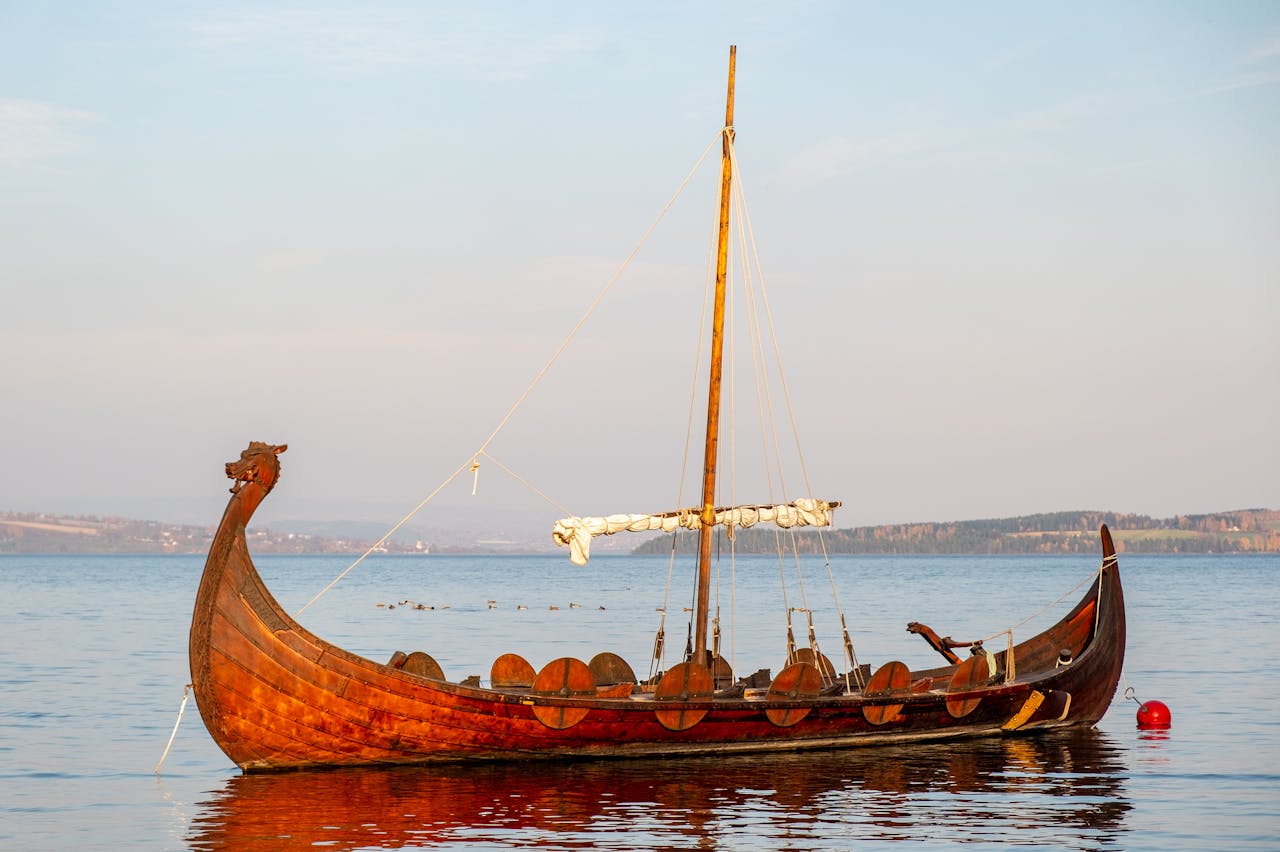
The other weekend my daughter and I were in Stockholm to go to a concert and museum. This as a student gift to her. Since she is interested in Norse mythology and then also the Vikings, it was a day at the Viking Museum. I can recommend it if you have an interest in the subject. There we learned, among other things, that our Nordic ancestors were very clean. They were keen to look good, be clean and smell good. They introduced a special day in the week that was dedicated to cleanliness. This was known as Liar’s Day, or as we now say, Saturday. There were rituals similar to those in Japanese culture, where people washed themselves carefully and for a long time. Combing was an obvious thing that all Vikings wore to ensure that their hair was neat. The Vikings, like perhaps all humans, were multifaceted. On the one hand, they were violent, attacking their enemies, and on the other, they were traders who traded peacefully with others. The first is probably the one that we have adopted most in culture, while the second was actually more common. When it came to trade, they traveled in different directions to carry out their trade. One story you can learn in the museum was about trade with the northern part of modern Britain. They established their own towns as trading posts or used the existing towns to trade. Dublin, for example, was a major trading city ruled by the Vikings. The Vikings called the area in northern England the Danelaw. As well as trade, there were other exchanges; people mingled with each other. It was not at all unusual for the ladies from the island to become very fond of the blond, handsome and sweet-smelling Norwegians. Because at that time the English men stank terribly. Hygiene was not something they cared about in England. And then there were these merchants who both looked good and smelled good. The fact that the women on the island were attracted to the Northmen even became a problem for England. This was because the women chose to follow the Norwegians home to Norway and Sweden. In other words, there was an exodus of young women from the region. This was not acceptable, thought those who ruled the towns and villages that the Vikings visited. Something radical needed to be done. They sat down and discussed how to get the women to stay and stop the exodus. What should be done? What do you think? What’s your best idea to stop this? You’re probably thinking the obvious, which would be to improve your own quality, i.e. to get better and start washing and taking care of your appearance. But what did they decide, do you think? Well, they passed a law forbidding the Vikings who came to England from washing themselves!
We are not going to get better, they are going to get worse.
Ah, how clever. Instead of having to improve ourselves and step forward and develop, we prohibit those who are better than ourselves from being better us. We do not need to change, but the others are the ones who should change. We should not become better, they should become worse. Does that sound familiar? I would think so. I see this all the time, where businesses or society would rather prohibit than develop. As this occurred 1200 years ago and continues today, it seems to be a spinal reflex in us humans.
For example, someone comes up with…
- A new vehicle for moving around. Then we want to ban it, such as jet skis, hoverboards and electric scooters.
- A new service in the health sector, for example. Then we want to ban it, for example Kry and Min Doktor.
- An alternative way to do something in your business. Then some people want you not to discuss it, with a lot of arguments like “we don’t have the time”, “we don’t have the budget”, or similar. Just put the lid on.
You and I must work hard to change this. If the reflex is to ban as soon as things come up that we don’t like and/or that make us need to change, then those of us who are aware of this must also actively think about asking other questions.
Questions that make us think twice. Questions that question the prohibitionist reflex and actually evolve instead. Everything may not be perfect with the new, but to prohibit it is to fail to see the potential of development.
Keep an eye out in the media for where someone has a new way of doing something, and then follow the debate that follows. Check it out and learn what the patterns are.
Also keep your eyes and ears open in your workplace, where someone suggests an improvement. Follow closely what happens when others, who do not want to change, respond.
I also think of the pure Vikings who, if they were to follow the law, were not allowed to wash and keep themselves clean. Fortunately, cleanliness won out over dirt, as we realized all the benefits of being clean such as avoiding diseases, besides the obvious that it is more pleasant.

